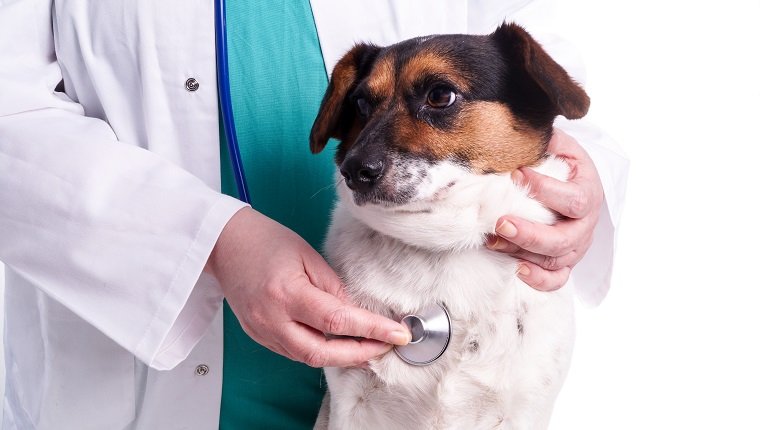Arrhythmia in dogs is an abnormality in the rhythm of the heart, which can include the speed, strength, or regularity of heart beats. It’s caused by unusual electrical activity in dogs’ heart muscles, which can come from congenital issues present at birth, injuries, infections, stress, and many other possible factors.
This condition is fairly common in dogs and isn’t always something to worry about. Many dogs live completely normal lives without showing any related symptoms or health issues; however, irregular heart beats are sometimes a sign of serious health concerns.
If your dog shows signs of having an unusual heart beat, then you must consult a veterinarian to diagnose any health conditions your dog might have and begin treatment. Here’s what you should know about the symptoms, causes, and treatments for arrhythmia in dogs.
Symptoms Of Arrhythmia In Dogs

The main symptom of arrhythmia in dogs is irregularities in the heart beat, which you may notice when you check your dog’s pulse, or a vet might find it during a routine exam.
The heart may be beating too fast or too slow, the beats may not be strong enough, the beats may have an irregular rhythm or skip beats from time to time, or the arrhythmia may include multiple abnormalities.
Outward symptoms in dogs are relatively uncommon and usually result from an underlying condition if they appear at all. Some uncommon symptoms include weakness, especially if the heart is beating too slow, or loss of consciousness.
Causes Of Arrhythmia In Dogs

Arrhythmia in dogs may be caused by a number of conditions, though sometimes these are fairly harmless and just require monitoring, diet management, and staying in shape. Irregular heart beats can, however, be a sign of serious conditions, too.
Arrhythmia can affect any dog, though brachycephalic dogs–dogs with shorter snouts–seem to have a predisposition to it. These breeds include Boxers, Bulldogs, Lhasa Apsos, Pekingese, Pugs, Shar-Peis, and Shih Tzus.
Here are several possible causes of abnormal heart beats in dogs:
- Gastrointestinal disease
- Respiratory disease
- Exposure to toxins
- Electrolyte imbalance
- Congestive heart failure
- Congenital heart abnormalities (present from birth)
- Injuries
- Infections
- Environmental stress
- Heart disease
- Diseases that affect the vagus nerves
- Cerebral disorders
- Conditions that cause pressure within the skull
Treatments For Arrhythmia In Dogs

Treatment for arrhythmia in dogs depends on the severity of the condition and the underlying causes. Some dogs don’t require treatment at all if the condition doesn’t pose any health risk.
Other cases can be life threatening or indicate the presence of heart disease. A vet can perform an exam and run tests to find out whether the abnormal heart beat is a problem that requires treatment or not.
There are some medications that vets may use to treat heart beat abnormalities in dogs. These include digoxin and atropine, among others.
In some cases, there are surgical options, like catheter ablation, a procedure that destroys the tissue that causes the arrhythmia. Another procedure involves placing a pacemaker to regulate a severe arrhythmia.
If your dog has an arrhythmia, then your veterinarian will be able to tell you which treatment options are available for you to consider.
Has your dog ever had an arrhythmia? What was the cause? Let us know in the comments below!





